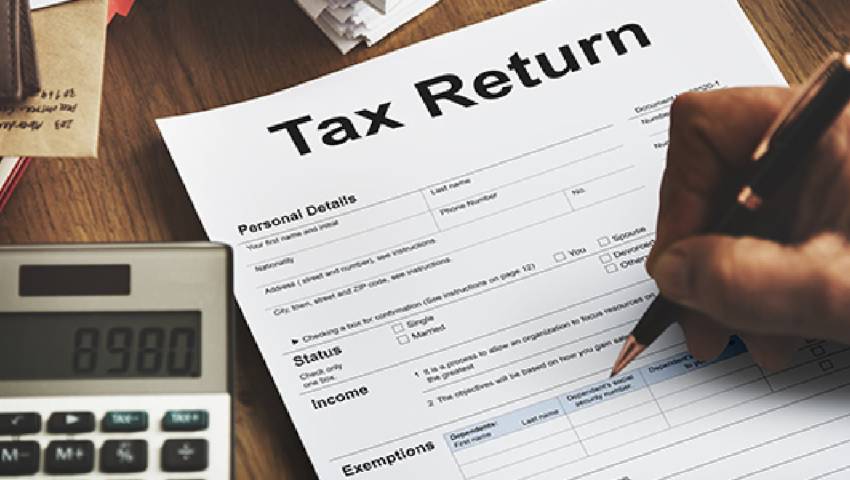
- 06/10/2024
- MyFinanceGyan
- 231 Views
- 4 Likes
- Tax
What is Income Tax Return?
Every citizen of India has to pay tax on their income to the Government of India as per the Income tax rules and regulations. Whether you are an individual, association or a firm, LLP, local authority or a Hindu undivided family, your income for each financial year is taxed in accordance with Income Tax laws. Hence, filing your Income Tax return (ITR) on an annual basis is essential. You may choose to file income tax return online or offline, as per your convenience.
What is Income Tax Return?
Income Tax Return (ITR)is a form that an individual submits to the Income Tax Department of India to file information about his income and taxes payable during that year. Information filed in an ITR should be applicable for a particular financial year between 1st April to 31st March of the next year.
The income you earn can be from sources such as salary, profit in business, sale of house or property, dividend or capital gains, and interest received among others. If you have paid tax in excess during a year, you will get a refund by the Income Tax Department.
Is Filing ITR Compulsory?
Income Tax rules dictate that if you earn more than the limit that is exempted from being taxed by the Government, you are mandatorily required to file your tax return according to the tax slabs for each year. Filing your ITR post the due date may attract a penalty and also become a deterrent in getting a loan or visa approved in the future. Additionally, failing to file your return on time could result in receiving a tax notice from the Income Tax Department, which may include penalties and interest.
Who is Required to File ITR?
Now that you know what an income tax return is, let us take a look at the list of people as well as enterprises that are mandated by law to file income tax return every financial year.
- Any individual who is less than 59 years and has an annual income of more than Rs. 2.5 Lakhs should file an IT. The exemption limit for senior citizens between 60 to 70 years of age is Rs. 3 Lakhs. For super senior citizens (80 years and above), the limit is Rs. 5 Lakhs. Income calculation should be done without allowing deductions specified under Section 10 of the Income Tax Act.
- A registered company with yearly income, even if it has not made any profit during the period
- An individual who wants to claim a refund on surplus income tax or tax that was deducted from the annual income.
- An individual having an asset or any other financial interest outside of the country.
- A company out of India with treaty benefits on transactions made within the country.
- NRIs who earn above the basic yearly exemption limit of Rs 2.5lakh.
What Documents do you Need to File ITR?
When you start the process of filing your income tax return, apart from your salary slips, bank savings account passbook, Aadhar card and PAN card, there are a few other documents that you will require to ease your tax filing process:
- Form 16: It is provided by your employer and contains details of the salary paid by them to you and the Tax deducted at source (TDS) on it.
- Form 16A: It contains details on TDS deducted on interest received from deposits such as fixed or recurring bank deposit.
- Form 16B: If you sell a property, TDS applies on the amount received from you by the buyer, the details of which are present in this form.
- Form 16C: TDS details of the rent paid by your tenant to you are recorded here.
- Form 26AS: This form represents your comprehensive statement of taxes against the PAN number. It includes TDS by your employer, bank or any other organization that has made a payment to you. Advance taxes or self-assessment taxes paid, proof of tax saving investments such as deductions as prescribed from Section 80C to 80U including life insurance policy or a term plan are also listed.
How to File ITR Online?
You can now submit your tax return sitting at home if you have an internet connection. This has been made possible with e-filing that uses pre-approved tax preparation software by the Income Tax Department. More and more taxpayers are increasingly filing their returns online given its benefits such as:
- Getting Refund: If tax has been deducted at source on the payment made to you and you want to claim a refund of the amount, you need to furnish your ITR for the financial year for the refund to be processed.
- Verification Proof: When you apply for a loan, your eligibility is measured using your yearly income as the yardstick. An Income tax return form with details of your earnings gives the borrower a clear picture of your previous income, lending credibility to your application. Similarly, visa applications also require income proofs, for which tax returns are the most accepted documents.
- Proof of Income: When you buy a term plan,n your insurer might require your ITR to decide the compensatory amount to be paid to your nominees in the event of death or disability. The ITR is considered as an officially verifiable proof of income for the purpose.
Which ITR to File?
There are seven different types of ITR forms for different categories of individuals and sources of income. The Income Tax Department has different forms for each taxpayer depending on the category of income generation:
ITR – 1: This form is applicable only for resident individuals (not applicable to NRIs/HUF/any other entity) having total income up to Rs 50 lacs and who have income under the following heads:
- Income from Salary/Pension, or
- Income from one house property
- Income from Other Sources
ITR – 2: ITR-2 form applies to all individual / HUF who are not eligible to file ITR- 1 and who are having income from any source other than income from Business or Profession.
ITR – 3:This form is applicable for individuals and HUFs who have income from profits and gains from business or profession.
ITR – 4:This form applies to all resident individual / HUF / Firms (other than LLP) having total income up to Rs 50 lacs & having income under the following heads:
- Income from business or profession computed on a presumptive basis under section 44AD, 44AE or 44ADA
- Income from Salary/Pension
- Income from One House Property
- Income from other sources
ITR – 5: ITR-5 form applies to persons other than Individuals, HUF, Companies & persons filing form ITR 7. Ideally, this form covers all partnership firms, LLP, AOP, BOI, Artificial Judicial Person, Co-Operative Societies, and Local Authorities. The form is also used by investment funds, business trusts, and estates of the deceased and insolvents.
ITR – 6:This form applies to all Companies other than companies claiming exemption under section 11. Section 11 pertains to charitable trusts / religious trusts for which ITR 7 is applicable.
ITR – 7 : This form applies to persons including companies required to furnish return u/s 139(4A), 139(4B), 139(4C) or 139(4D) or 139(4E) or 139(4F). This includes religious & charitable trusts, political parties, scientific research associations, universities & colleges.
How to Check Your ITR Status Online?
After you have submitted your tax return, you can check its status online easily on the e-filing website of the Government of India. Depending on whether or not you have created a login account on the website, here are a few simple steps to check your ITR status:
- Without login details: Click on the ITR status link displayed on the left of the website. It will direct you to a page wherein you need to fill details of your PAN number, ITR acknowledgement number and captcha code. Your tax filing status appears once you have keyed them in.
- With login details: Login to the website using your username and password. Then, click on the ‘view returns or forms’ option. Select the assessment year and income tax returns from the dropdown menu. Post this, you can see whether your ITR has been verified or processed.
How to Download ITR V Form Online?
After you have duly submitted your tax return, the Income Tax Department generates a verification form that lets you authenticate the e-filing of your taxes done online. This is allowed only for those who file their returns without digital signature. Let us take a look at how to download the ITR-V form online:
- Visit the Income Tax Department of India website at https://portal.incometaxindiaefiling.gov.in/e-Filing/UserLogin/LoginHome
- Click on ‘View Returns/ Forms’ to view your e-filed return
- Then select income tax returns from the available options
- This will display the returns filed for all years by you
- Download ITR-V by clicking on the acknowledgement number and selecting ‘ITR-V Acknowledgment’
- When asked for your password, enter your PAN number in lower case and your date of birth to open the document
- Take a printout of the document and sign it. Send it by post to CPC Bangalore within 120 days of having e-filed your tax return. The other option is to generate Aadhar OTP via net-banking, ATM etc and complete e-verification of your ITR. File your ITR on time and avoid missing the due dates to stay on the safer side. If you somehow miss the due date for filing ITR, you can file your Income tax return on a later date on or before 31st March of the next year. That means either you can file your ITR before the completion of athe ssessment year or by the end of the assessment year.
5 reasons to file Income Tax Returns:
- Income and Address proof-Income Tax Return is one of the accepted documents by the government to verify your income as well as your address. Hence you can use it as a proof of your income and address
- Easy loan approval – If you apply for an auto loan (2 wheeler or 4 wheeler), housing loan, major banks and lending institutions may ask you to provide a copy of your Income Tax return, which will help in the easy approval of loan application.
- Claim Tax refund
- Easy Visa Processing
- Avoid penalty
Please note,
The views in the article/blog are personal and that of the author. The idea is to create awareness and for educational purpose and not intended to provide any product recommendations.



